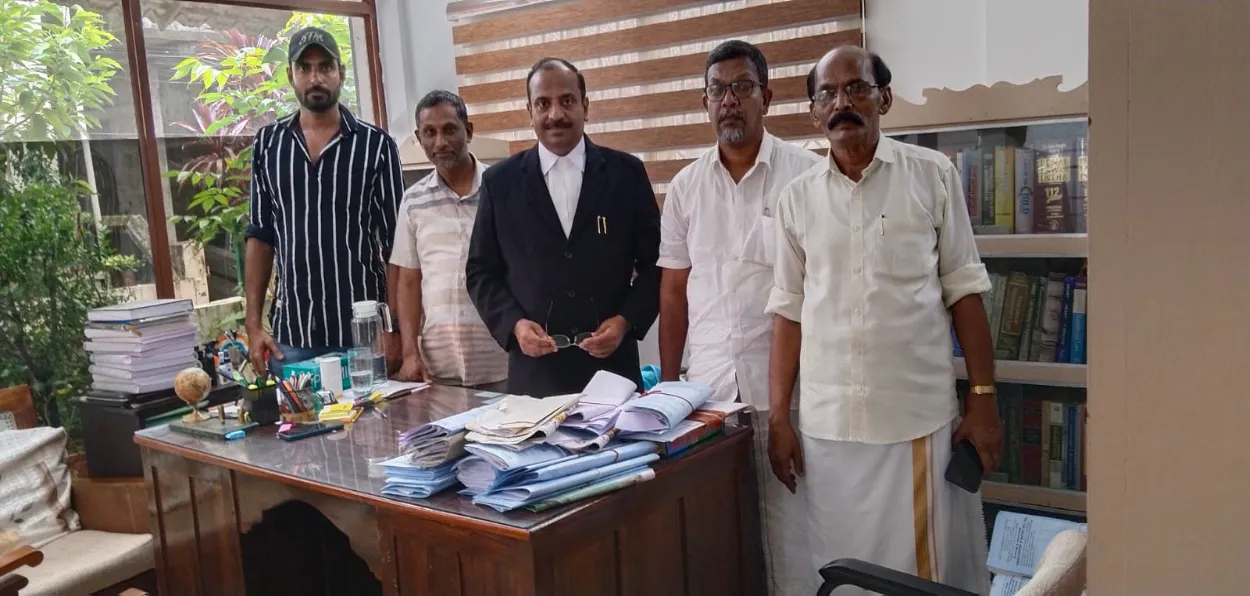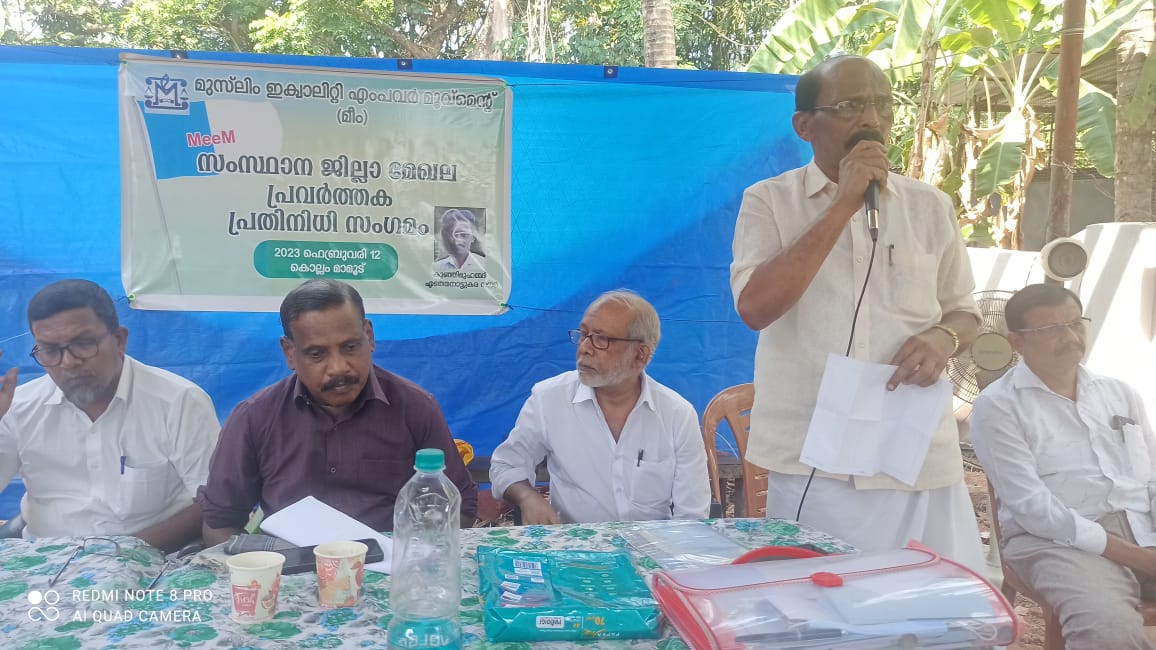
Sreelatha Menon/ Thrissur
Kerala Muslims have taken the first step towards restoring dignity and civil rights to its Dalits who have been treated historically as social outcasts by the community. The state Waqf board this week ended the discriminatory practices followed in the Puthoorpalli juma masjid said to be over four centuries old.
The traditional by-laws of the family-owned mosque forbade certain communities from membership and voting rights in the masjid/mohal committee. The Waqf board in October ended this bylaw followed by the mosque.
The Waqf board stated that the Dalit Muslim members of Ossan (Barber), Labba, and Muaddin (mosque employees) will now have membership and voting rights in the mosque committee. According to Saddique Mampad, activist and director of a media college in Kerala, the issue escalated in Puthoorpalli mosque as it was owned by a family and followed bylaws decided centuries ago.
A few family-owned mosques in Kerala had traditional bylaws that led to discrimination. This practice however is not common in other mosques, he said.
The Ossan community had organized themselves in Kottayam to demand equal treatment after a bitter experience with the Puthoorpalli mosque committee members during COVID-19. They even started a movement, and their members have been approaching various forums. The decision of the Waqf board is a culmination of their struggle, he said.
The other communities excluded from the traditional mosque of Puthoorpalli were the Llabba and the Muaddin. "They were not so marginalised as Ossos. They were excluded simply because the age-old bylaws of the mosque said so,” says Mampad.
.jpeg) MEEM members with leaders of Samasta, a powerful Sunni Muslim clerics body during their campaigning for rights
MEEM members with leaders of Samasta, a powerful Sunni Muslim clerics body during their campaigning for rights
Khaled Ansari, Sociologist and academic at Asim Premji University, says that there has been some discussion within the Ossan community in Kerala about their rights after incidents of exclusion from the Puthoorpalli mosque committee. A member was even served a show cause notice as he walked into a meeting out of curiosity.
“If some sections have been excluded from the spiritual economy so far it was a wrong thing. What has now been achieved is simple human equality which everyone deserves,” he added.
Kerala Muslims are divided into strata - the highest being reserved for the Thangals, who claim decadence from the Prophet, followed by the Koyas and Moplas. A fat middle chunk of the social stratification triangle is for the Malabaris and the bottom-most layer by the Dalits who suffer exclusion. Ossan and the fishing community Pusalan are the worst hit by exclusion, he says.
Raees Mohammad, a founding member of a YouTube channel Dalit Camera, says that if there are castes, it means the community is built on hatred. On Dalit Camera, Raees posted a video of an Ossan community member explaining how he is treated like a pariah in society. “No one wants us for anything in society. No Muslim family considers us for marriage even though there is no caste system in Muslims. We are outcasts’’ he says.
While the excluded communities in Kerala are being given membership rights in masjid committees, the condition of such communities in other parts of the country is lamentable. Describing these castes as Maha Dalits, Faizan Khan a young Muslim from Indore in Madhya Pradesh, says that they live in abject poverty in many parts of his state.
.jpeg) Office Bearers of MEEM in front of the Kerala Waqf Board office
Office Bearers of MEEM in front of the Kerala Waqf Board office
“Being a member of the Waqf committee or participating in mosque activities and gaining religious knowledge is one thing…but being able to stay alive is another. Dalits struggle to even read Hindi in pockets like Chand Nagar in Indore. They can’t read write or even sign their names. How can they be part of Waqf or mosque committees?’’ he asks.
“Their kids don’t even go to madrasas as they roam from place to place begging for food. People refer to them as `mal’ or feaces…That is how unempowered they are,’’ says Khan, adding that he was happy all the same for the rights won by Dalits
Muslim Equality and Empowerment Movement or MEEM has been leading the struggle for civil rights for the Ossan (barber) community of Muslims in Kerala. Its general secretary Kunjammad said the discrimination and isolation of the Ossan were a result of age-old habits. “We suffered silently for generations but now we will not take injustice anymore. We will go to court.”
Here is in his words the story of the path-breaking victory of the Ossans of Changannassery:
When did the movement start?
“We started the movement in 2016 as members of the Ossan community were facing discrimination, especially from the mohal (Mosque) committee of “We started the movement in 2016 as members of the Ossan community were facing discrimination, especially from the mohal (Mosque) committee of Puthoorpalli masjid in Changannassery.
Discrimination was rampant. the Ossan are not made part of any social event. They are excluded. The committee doesn’t give them any benefits; nor does it charge them even when others have to pay (for services or fundraising). The discrimination starts from birth and does not end even on their death. They are sent to a separate burial space away from the general burial ground as they are supposed to contaminate the others.
 MEEM members campaigning for the rights of communities facing discrimination
MEEM members campaigning for the rights of communities facing discrimination
Why is the mhal (mohalla) committee of the mosque so important?
They are like the legislative assembly for the people in that locality. Everything related to our lives needs their approval.
If there is a marriage proposal, the girl’s family and boy’s family ask for certificates from their mohal committees in their respective areas. The mohal committee can send a damaging report to the other party if it is not happy with you.
This is what happened in Puthoorpally leading to a prolonged litigation ending in the recent Waqf board order.
The story of Khalid Anis Ansari
Khalid Anis Ansari, a student of the Azim Premji University who belongs to the Ossan community had been upset about encroachment outside his house. He went to the mohal committee of Puthoorpalli to complain. The committee humiliated him and asked him to leave as he was an Ossan and had no business to be there.
Then when a marriage proposal came to the family, the committee sent a letter saying the boy was from a low caste and of low morals.
This social invective against an Ossan family was taken up by other members from across the state.
The movement MEEM sent a petition to the Waqf board in July 2023. The Waqf board gave a favourable ruling but again a tribunal was formed to relook the case. Recently the tribunal asked the board and the mohal committee of Puthoorpalli to resolve the matter at once.
The decision to scrap age-old discriminatory bylaws of the mosque was a happy outcome.
Other forms of discrimination
We mentioned everything in our case. But we can’t take anything up separately again as we will look like troublemakers. We achieved this only because in 2019 we went to all Muslim organizations and with their consent sent a petition. We were not alone. We don’t know if we can fight for any other issue again. But if something comes up we can always go to court.
ALSO READ: How women got entry into Kerala's mosque neighbourhood committees
What about other mohal committees in Kerala?
The Waqf board has sent notices to all masjids saying that such things should not happen there.
The author is a freelance journalist based in Andhra Pradesh.
